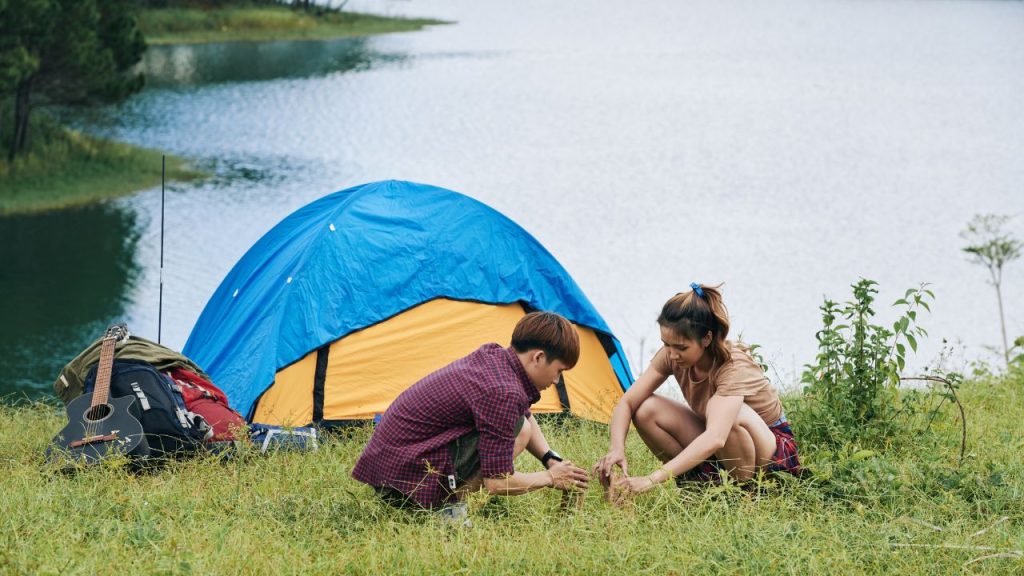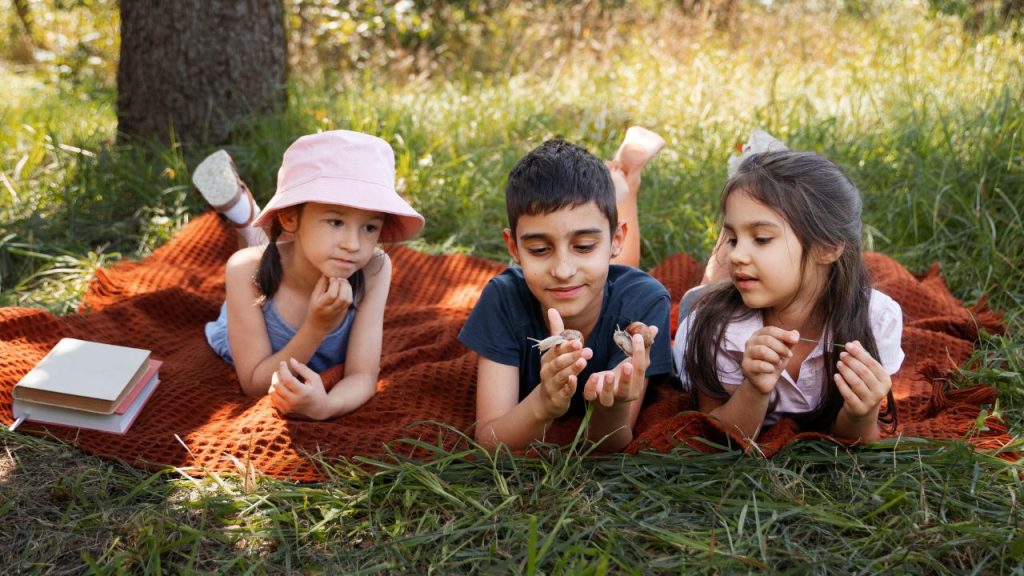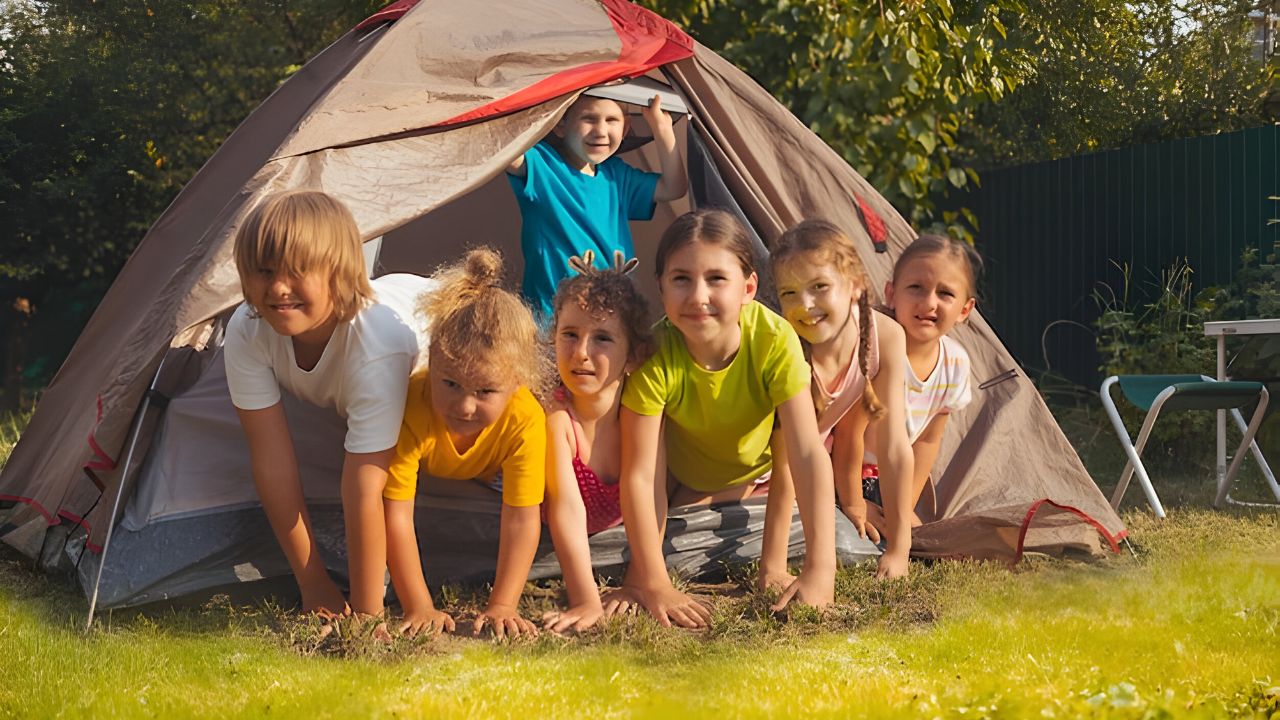Camping is an excellent opportunity for children to learn valuable outdoor skills while having fun and enjoying nature.
Teaching kids these skills not only helps them appreciate the outdoors but also fosters a sense of independence, self-confidence, and problem-solving abilities.
In this article, we’ll explore various outdoor skills you can teach your children during your next camping trip and provide tips on how to make the learning experience engaging and memorable.
Why Teach Outdoor Skills to Kids?
Teaching outdoor skills to children offers numerous benefits, including:
- Encouraging a love for nature: By engaging in outdoor activities, children develop a deeper appreciation for the environment and the importance of conservation.
- Promoting physical activity: Outdoor skills often involve physical activities that help children stay active, healthy, and fit.
- Developing self-confidence: Mastering outdoor skills gives children a sense of accomplishment and boosts their self-esteem.
- Enhancing problem-solving skills: Outdoor activities often present challenges that require critical thinking and problem-solving, helping children develop these essential life skills.
- Strengthening family bonds: Learning outdoor skills together as a family promotes bonding, communication, and teamwork.
Essential Outdoor Skills to Teach Kids

1. Fire Building and Safety
Teaching children how to build and safely manage a fire is a crucial outdoor skill. Explain the importance of fire safety and supervise them closely during the process.
How to Teach:
- Demonstrate how to gather appropriate firewood (tinder, kindling, and fuel)
- Show them how to build a fire using various methods (e.g., teepee, log cabin)
- Teach them how to light the fire safely using matches or a lighter
- Explain the importance of extinguishing the fire completely and properly disposing of ashes
2. Shelter Building
Building a shelter is an essential survival skill that can also be a fun and creative activity for kids.
How to Teach:
- Discuss the importance of shelter in protecting against the elements
- Demonstrate how to build simple shelters using natural materials (e.g., lean-to, debris hut)
- Encourage them to be creative and design their own shelters
- Emphasize the importance of leaving no trace and dismantling shelters when done
Teaching children how to navigate using a map and compass helps them develop spatial awareness and problem-solving skills.
How to Teach:
- Explain the basic components of a map (e.g., scale, symbols, contour lines)
- Show them how to use a compass to determine direction
- Practice orienting the map and identifying landmarks
- Set up a simple orienteering course for them to navigate
4. Knot Tying
Knot tying is a useful skill for various outdoor activities, such as setting up tents, securing gear, and building shelters.
How to Teach:
- Start with simple knots like the overhand knot and square knot
- Demonstrate each knot step-by-step and provide hands-on practice
- Use mnemonic devices or stories to help them remember the knot-tying process
- Challenge them to tie knots in various scenarios (e.g., tying a clothesline, securing a tarp)
5. Plant and Animal Identification
Familiarizing children with local flora and fauna fosters a deeper appreciation for nature and helps them understand the importance of biodiversity.
How to Teach:
- Provide field guides or nature apps to help identify plants and animals
- Encourage them to observe and describe the characteristics of different species
- Discuss the roles of various plants and animals in the ecosystem
- Emphasize the importance of respecting wildlife and not disturbing their habitats
6. First Aid and Emergency Preparedness
Teaching children basic first aid skills and emergency preparedness helps them stay safe and handle unexpected situations in the outdoors.
How to Teach:
- Explain the importance of having a well-stocked first aid kit
- Demonstrate how to treat common injuries (e.g., cuts, burns, insect bites)
- Practice emergency scenarios and discuss appropriate responses
- Teach them how to make an emergency shelter and signal for help
7. Leave No Trace Principles
Instilling the Leave No Trace principles in children helps them understand the importance of minimizing their impact on the environment.
How to Teach:
- Explain the seven Leave No Trace principles (e.g., dispose of waste properly, leave what you find)
- Demonstrate proper camping etiquette, such as staying on designated trails and campsites
- Encourage them to pick up litter and properly dispose of their own waste
- Discuss the long-term effects of human impact on the environment
Tips for Teaching Outdoor Skills to Kids

- Make it fun and engaging: Use games, challenges, and rewards to keep children interested and motivated.
- Break skills down into manageable steps: Teach one skill at a time and progress gradually to more advanced techniques.
- Encourage hands-on learning: Provide ample opportunities for children to practice and apply the skills they’ve learned.
- Lead by example: Demonstrate proper techniques and safety measures, and always model responsible outdoor behavior.
- Be patient and positive: Children learn at different paces, so be patient and offer encouragement and praise for their efforts.
FAQs
-
At what age can I start teaching my child outdoor skills?
You can begin teaching basic outdoor skills as early as 3-4 years old, but the complexity of the skills should be age-appropriate. As children grow older, you can introduce more advanced skills and concepts.
-
What should I do if my child is afraid or hesitant to learn a particular skill?
Be patient and understanding of your child’s fears. Start with small, manageable tasks and gradually build up to more challenging skills. Offer encouragement and praise for their efforts, and never force them to do something they’re uncomfortable with.
-
How can I ensure my child’s safety while teaching outdoor skills?
Always prioritize safety by supervising your child closely, using appropriate safety gear, and teaching proper techniques. Start with low-risk activities and gradually progress to more challenging skills as your child gains confidence and competence.
-
What if I’m not an expert in outdoor skills myself?
You don’t need to be an expert to teach your child outdoor skills. Learn alongside your child, and seek guidance from experienced outdoors people, instructional books, or online resources. Emphasize the importance of continuous learning and growth.
-
How can I make outdoor skills learning a regular part of our family activities?
Incorporate outdoor skills learning into your regular family activities, such as hiking, picnics, or backyard camping. Set aside dedicated time for practicing skills and discussing outdoor topics. Encourage your child to share their knowledge with others and celebrate their achievements.
Conclusion
Teaching kids outdoor skills while camping is a rewarding experience that offers numerous benefits for their physical, mental, and emotional development. By focusing on essential skills such as fire building, shelter construction, navigation, knot tying, plant and animal identification, first aid, and Leave No Trace principles, you can help your children develop a lifelong love for the outdoors and a deep appreciation for nature.
Remember to make the learning experience fun, engaging, and age-appropriate, and always prioritize safety. Be patient, encouraging, and lead by example to foster a positive and supportive learning environment.
By investing time and effort in teaching your children outdoor skills, you are not only creating lasting memories but also equipping them with valuable life skills that will serve them well beyond the campground.

Hi there! I’m John W. Perkins writer and Founder howmp.com. As a passionate outdoorsman and travel enthusiast, I’ve made it my mission to share my experiences and knowledge with fellow adventurers like you.

